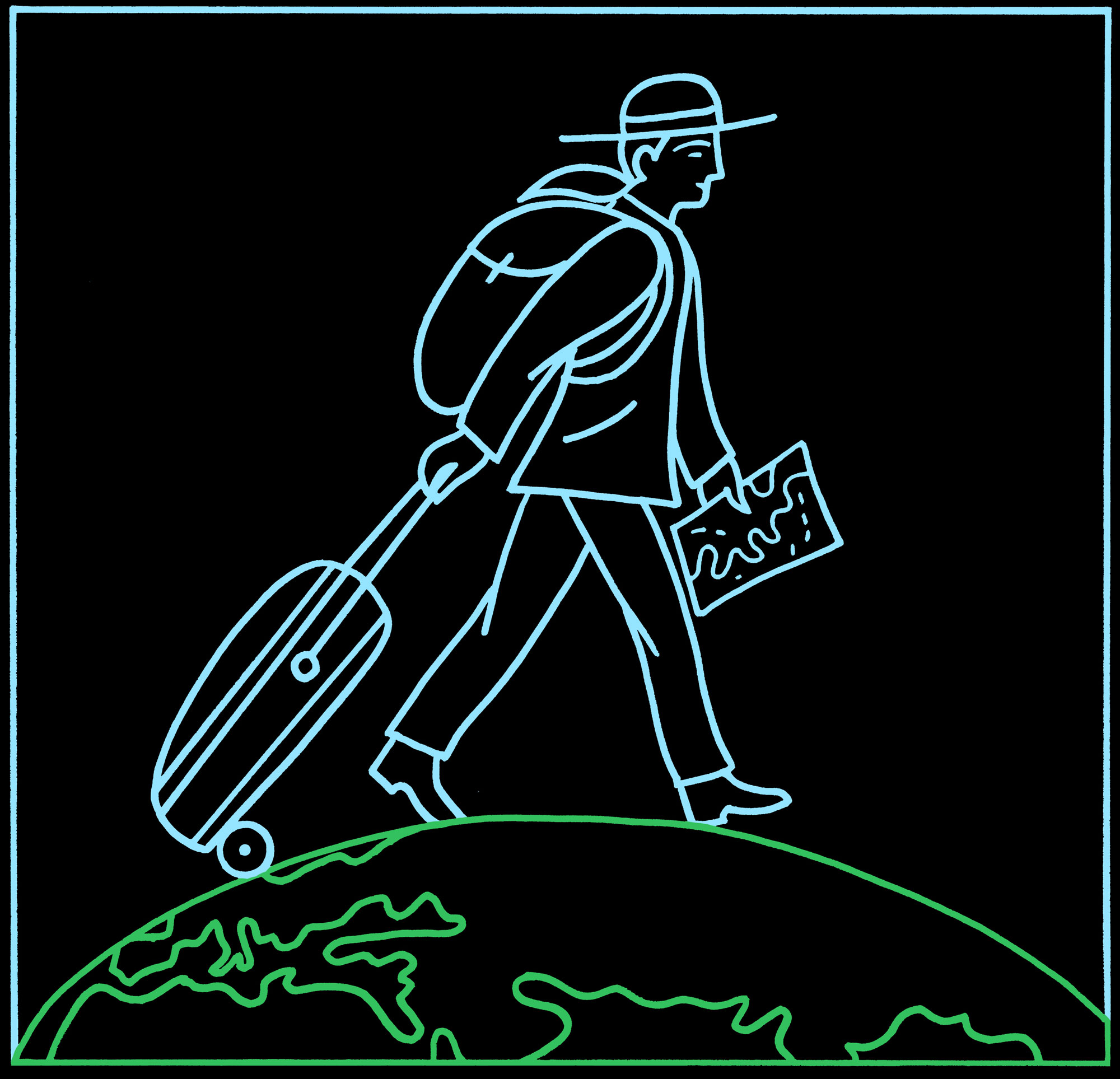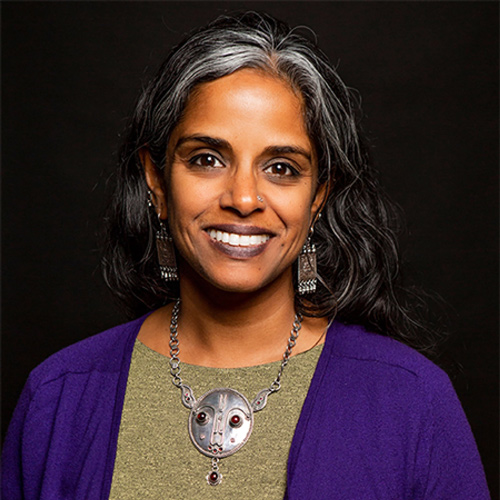Finding new horizons Finding new horizons Finding new horizons
Traveling gives us a framework for connecting with others.
By Anu Taranath | Illustration by Anthony Russo | June 2024 issue

Are they church people?” the lady asks me, gesturing toward my students. I’m in a village outside of Bengaluru in South India with a group from the UW. “Church people? Oh no, not at all,” I reply. “These young people are students from America who want to understand how different people live. The fancy malls and new construction tell one story, but you and your village community tell another. That’s why we’ve come here, to learn.”

Anu Taranath
“They’ve traveled so far simply to learn!” she says, applauding an educational system that encourages such far-flung sojourns. “My children’s teachers have not come to school in three months. Tell me, if the government gives no money for teachers to teach, what future is there for our children?”
I nod my head. I can’t even begin to compare the educational system she describes with that of mine and my students’. How is it possible that this lady, her children, my students and I all live in the same world with such different experiences and such different consequences?
Travel in an unequal world raises all kinds of big feelings that we rarely acknowledge, let alone openly discuss. Whether it’s with a rail pass and backpack, a semester abroad or on a university-led tour, college is a time when many of us meander all over the planet to learn, heal, teach, build things, ally with and help others. Travel can broaden our horizons and provide perspective. There’s really no other experience like hauling ourselves to another part of the planet to smell, taste, touch, hear and see what we can. When we notice that some people don’t have the same access and rights that others—including ourselves—might take for granted, we can experience a range of feelings.
For 20 years I’ve shepherded UW students to different parts of our planet and facilitated rich conversations on issues: the politics of our journeys, how our identities play out at home and abroad, what differences and similarities we notice, if good intentions are good for everyone and what “helping” means for others and ourselves.
It seems we’re always traveling in different ways. Let’s pay attention to what we notice and how it makes us feel. We travel through different neighborhoods of our city and witness ways in which life is either easier or more difficult for some. We travel through different political discourses and seek to clarify our own values. And sometimes, even, we board planes to experience life and culture in another part of the world. When you or I travel in any of these ways, the experience can either reinforce what we already know or nudge us to rethink our assumptions. Sometimes it feels great to expand and stretch. And sometimes we may resist, pause and consider anew.
Hopefully, too, traveling gives us a framework to practice connecting with one another amid our differences. And when you think about it, who among us wouldn’t benefit from a few more authentic connections? The lady in India shared much with me about her life. Since I could not resolve anything she was going through, I simply rested my mind and listened openly. In the process of attending more carefully to one another, we come closer to true curiosity and compassion. And through our journeys, we might even heal a bit of ourselves, too.
Professor Anu Taranath’s “Beyond Guilt Trips: Mindful Travel in an Unequal World” is one of Oprah Magazine’s “Best Travel Books of All Times.” A winner of the UW Distinguished Teaching Award, Taranath is on the faculty in the departments of English and Comparative History of Ideas.